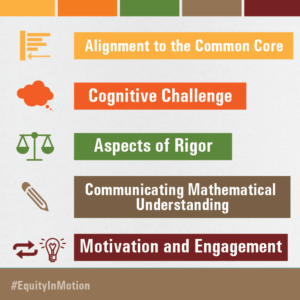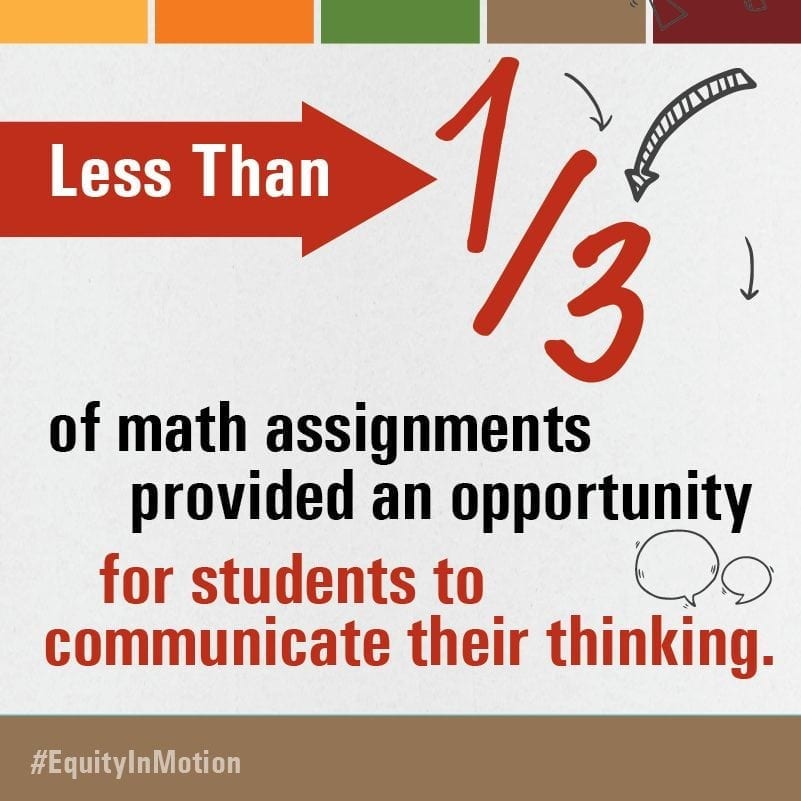Classroom assignment analysis is a powerful lens for viewing the day-to-day experiences of students. It provides hugely important insights into what teachers know and understand about college- and career-ready standards — and what those teachers believe students can do independently as a result of their teaching. Yes, what we ask students to do on a daily basis matters.
In our new report, Checking In: Are Math Assignments Measuring Up?, we take a close look at what educators are asking students to do to meet rigorous math standards. Building on our previous analysis of ELA, science, and social studies assignments, we reviewed over 1,800 middle-grades assignments from over 90 math courses from 12 middle schools in six districts across the country. We used a framework comprised of five key areas:

So what did we find?
Although generally aligned, at least in some part, with grade-appropriate standards, the classroom assignments tended to have low cognitive demand, over-emphasize procedural skills and fluency, and provide little opportunity for students to communicate their mathematical thinking. Moreover, this tendency was often worse in higher poverty schools.
As we have seen in past standards movements, rigorous content standards do not automatically lead to cognitively demanding tasks that promote mathematical reasoning and problem-solving. Rather, the implementation of the standards and resulting decisions we as educators make about how students experience content are critically important. To assist with this, Ed Trust is also releasing our Math Assignment Analysis Guide as a resource for educators to use as they create their assignments or consider undertaking an analysis of their own classroom tasks.
If we are going to meet the true intent of the math standards and ensure mathematical proficiency for all students, especially those who may not have access to the resources and opportunities that can supplement a lack of rigor in the classroom, it is imperative that we give attention to the quality of assignments that we are putting in front of students. They deserve no less.







